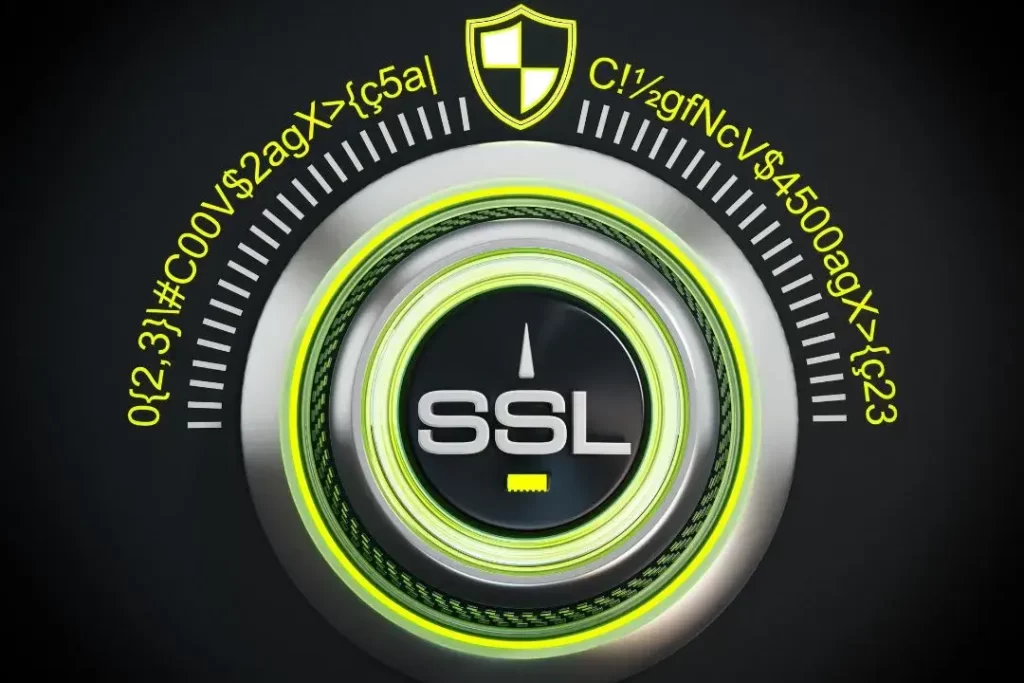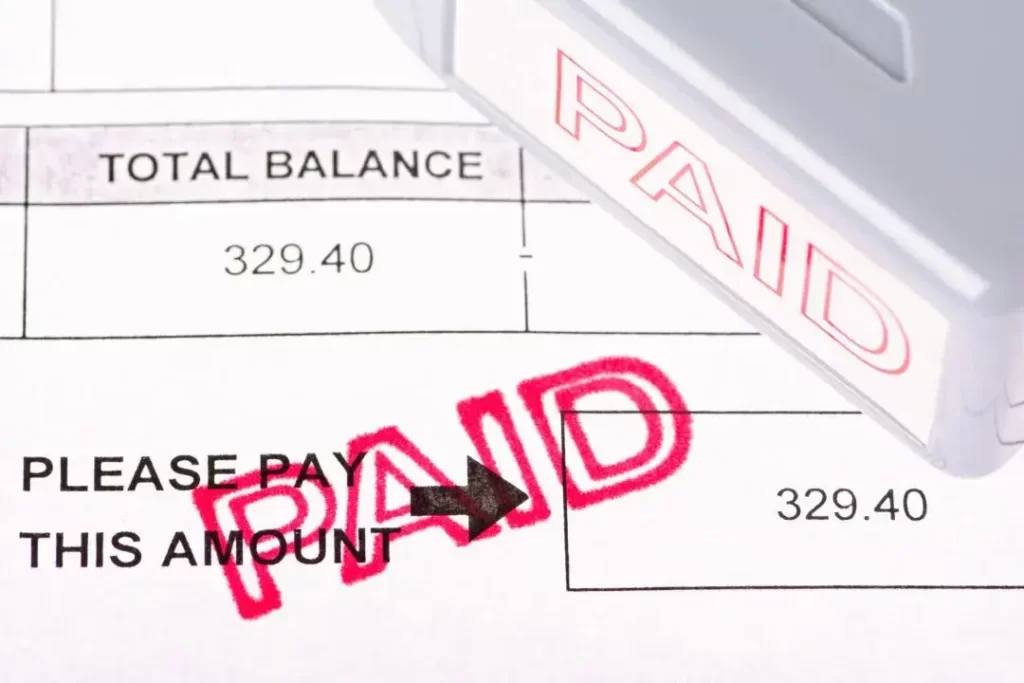
Revealing the 'TRUTH': How important is SSL for SEO?
"Secure Your SEO Triumph: Where Trust Meets Rankings"
As we delve into the intricate world of SEO, our minds are exhilarated by the quest to decipher the hidden mechanisms that propel websites to the forefront. We meticulously fine-tune every aspect, but what if I told you there’s a hidden secret, a mysterious factor that holds the key to unlocking SEO success? Prepare to be captivated by the astonishing revelation of how important is SSL for SEO?
But why does SSL hold such influence over your SEO? The answer is simple yet profound: trust. Google wants its users to feel secure, to know that their personal information is shielded from prying eyes. By executing SSL, you establish a bond of trust with both your visitors and Google’s algorithms.
What is an SSL certificate?

SSL stands for Secure Sockets Layer, which creates an encrypted connection between a browser and a website. Think of it as armor for the internet, defending against adversaries and ensuring the utmost safety for sensitive data entrusted to websites. Next time you visit a website starting with “https://” instead of the usual “http://,” take note of the added “s.” It signifies safety, a silent affirmation that your information rests in trustworthy hands.
But how does this amazing technology work? When you visit a website with SSL protection, the SSL certificate starts a special process called a cryptographic handshake. It’s like a secret exchange where keys are shared, and trust is established. During this secure exchange, the SSL certificate confirms that the website is real and safe. Once done, a shield surrounds your connection, turning your data into a secret code. Making it impossible for others, like hackers, to figure out the language becomes one only the receiver can understand. Your information will make them aware.
Explore the Types of SSL Certificates
Understanding the various types available is essential for website owners seeking to establish trust and security. To help you make an informed decision for your website’s security needs.
1. Domain Validated (DV) Certificates:
Domain Validated certificates are the most common and straightforward type of SSL certificate. They provide basic encryption and verify domain ownership. The validation process involves confirming control over the domain name, making DV certificates quick and easy to obtain. They are suitable for personal blogs, informational websites, or small-scale e-commerce platforms where a higher level of trust is not a primary concern. If you want to learn more about Domain Validated Certificate Click here.
2. Organization Validated (OV) Certificates:
Organization Validated certificates offer a higher level of validation and trust compared to DV certificates. In addition to verifying domain ownership, OV certificates validate the organization’s details, such as its legal existence and physical address. These certificates display verified organizational information, instilling greater confidence in visitors. OV certificates are commonly used by businesses and organizations that handle sensitive data or conduct online transactions.
3. Extended Validation (EV) Certificates:
Extended Validation certificates represent the pinnacle of trust and security. They undergo the most rigorous validation process, including verification of legal existence, physical location, and operational details. EV certificates provide the highest level of assurance to website visitors by displaying the organization’s name prominently in the browser’s address bar. The distinctive green address bar signifies a website’s authenticity and is synonymous with trust. EV certificates are particularly valuable for e-commerce platforms, financial institutions, and websites prioritizing a strong visual trust indicator.
Decoding the SSL Dilemma: Free vs. Paid Certificates

Website owners face a crucial decision: opting for free SSL certificates or investing in paid ones. Each option presents distinct advantages and considerations, making it essential to understand their differences. Free SSL certificates provide encryption without the financial commitment, making them a budget-friendly choice for shorter validity periods, particularly for personal blogs or small-scale websites. They offer a basic level of security but may need more extensive validation process and visual trust indicators provided by paid certificates.
On the other hand, paid SSL certificates come with several notable advantages. They undergo rigorous validation processes, ensuring the legitimacy and authenticity of the website. This validation instills more trust in visitors, as they can see the website’s identity verified by a trusted authority. Paid certificates also often include warranties and liability coverage, providing financial protection in case of security breaches or mis-issuance. Additionally, paid certificates typically offer enhanced customer support, and longer validity periods, reducing the frequency of renewal tasks and allowing website owners to receive expert assistance throughout the setup and management process. Flexibility and additional features are other benefits of paid certificates. They often provide comprehensive security features such as vulnerability assessments, malware scanning, and daily website backups. These features contribute to a more robust security posture and can be particularly advantageous for e-commerce websites or those handling sensitive customer information. Paid certificates also offer options for extended validation (EV) certificates, which display the organization name prominently in the browser’s address bar, enhancing the level of trust conveyed to visitors.
What are the benefits of an SSL Certificate for SEO?
Following are some benefits of implementing an SSL certificate and how important is SSL for SEO. Let’s move forward to reveal the benefits:
1.Enhanced Trust and Credibility:
SSL certificates serve as trust beacons, assuring visitors that your website is secure and legitimate. This added layer of security creates a strong first impression, instilling trust and credibility in the minds of your audience. Search engines recognize this trust factor, and websites with SSL certificates tend to rank higher in search results, benefiting from improved click-through rates (CTRs) and lower bounce rates.
2.Improved Website Performance:
In the fast-paced digital era, users crave instant gratification. SSL certificates not only encrypt data but also contribute to faster website performance. HTTPS (Hypertext Transfer Protocol Secure) encrypts data during transmission, reducing the chances of data breaches and improving overall loading speeds. Search engines take loading speed into account when ranking websites, so SSL certificates indirectly boost SEO by providing a smoother, faster user experience.
3.SEO Boost through HTTP to HTTPS Migration:
Migrating your website from HTTP to HTTPS, which requires an SSL certificate, can positively impact your SEO efforts. Search engines favor secure websites and prioritize them in search results. By migrating to HTTPS, you improve your website’s security and send a strong signal to search engines that your website is reliable and trustworthy. This can lead to higher rankings and increased organic traffic.
4.Protection against Data Interception:
SSL certificates utilize encryption to protect data transmission between the user’s browser and your website’s server. This encryption thwarts potential attackers attempting to intercept and manipulate sensitive information, such as login credentials or financial details. With the rise of cyber threats, search engines prioritize websites with secure connections, providing an additional incentive for SSL adoption.
5.Mobile Optimization and User Experience:
Mobile devices have become the go-to platforms for browsing the web. SSL certificates are pivotal in optimizing mobile device websites, improving user experience and SEO rankings. Search engines like Google prioritize mobile-friendly websites in their algorithms. An SSL certificate ensures your website is mobile-friendly, providing a seamless browsing experience for users on smartphones and tablets.
6.Social Media Sharing and Referral Traffic:
The impact of SSL certificates extends beyond search engine rankings. Social media platforms prioritize secure websites when displaying shared links. With an SSL certificate, your website’s content will likely be shared and recommended across social media channels. This increased visibility can generate additional referral traffic, boosting your website’s overall SEO performance.
7.Future-Proofing Your SEO Strategy:
As search engines prioritize security and user experience, SSL certificates are poised to become even more critical. By proactively adopting SSL certificates now, you future-proof your SEO strategy. Investing in security displays your commitment to providing a safe online environment to search engines and users alike.
What Do I Do If I Have an Expired SSL Certificate?

If you have an expired certificate, you will have realized how important is SSL for SEO on the website but don’t worry; we’ll unveil the steps to take when encountering this situation:
● Assess the impact:
Assess the impact of an expired SSL certificate on your website. Evaluate the extent to which your website’s functionalities are affected. Does it lead to warning messages or an outright block from browsers? Understanding the implications of the expired certificate will help determine the urgency and course of action required.
● Contact Your Certificate Authority (CA):
Your Certificate Authority is your partner in securing and managing SSL certificates. Reach out to them promptly to discuss the situation. Explain the expired certificate and provide any necessary details or documentation they may require. Your CA will guide you through the renewal process or provide alternative solutions, depending on their policies and the specific circumstances.
● Renewal or Reissuance:
If your website’s SSL certificate has recently expired, the most straightforward solution may be to renew it. Close collaboration with your CA ensures that all pertinent information is confirmed and refreshed when undergoing the renewal procedure. If it is impossible to renew an expired certificate, follow guidance from your CA on reissue a fresh certificate.
● Immediate Temporary Measures:
While waiting for the renewed or reissued certificate, it is crucial to implement immediate temporary measures to maintain a secure browsing experience for your users. One option is to install a self-signed certificate temporarily. While self-signed certificates may trigger browser warnings, they still encrypt the connection, providing a basic level of security until the proper certificate is reinstated.
● Communicate with Visitors:
Transparency is key in maintaining trust with your website visitors during this time. Communicate the situation to your users by displaying a notice or banner on your website, informing them about the expired certificate and the steps to rectify it. Reassure them that their data remains safe and that the issue will be resolved promptly. Clear and proactive communication goes a long way in preserving user confidence.
● Test and Validate the New Certificate:
Once the renewed or reissued SSL certificate is obtained, thoroughly test and validate it before implementation. Perform tests to ensure the certificate is installed correctly, functioning as expected, and not cause compatibility issues or warnings. This step guarantees a seamless transition to the new certificate without disrupting your website or user experience.
● Update Links and References:
During the process of renewing or reissuing the SSL certificate, it’s essential to update any internal and external links or references pointing to your website. This includes social media profiles, directories, and other platforms where your website is listed. By ensuring that all references are updated with the new certificate, you avoid potential security warnings and maintain a consistent online presence.
● Regular Monitoring and Renewal Reminders:
Expired SSL certificates are reminders to establish a robust monitoring and renewal system for future certificate management. Set up reminders before expiration dates to allow ample time for the renewal or issuance process. Additionally, explore the possibility of utilizing automated tools or services that track and manage SSL certificates to minimize the chances of future expiration-related issues.
Remember, proactive management and regular SSL certificate monitoring will minimize expiration-related concerns, ensuring a secure and seamless online presence.
How Important is SSL for SEO HTML or WordPress?
In this digital supremacy, a question emerges: How vital is SSL when optimizing your website, be it HTML or WordPress? Each platform carries its distinct qualities and considerations, shaping the impact of SSL on your SEO rankings. SSL acts as a powerful catalyst. It enhances the overall security of your HTML-based site, fostering a sense of trust among visitors and search engines. The encrypted connection offered by SSL elevates your website’s credibility, signaling to search engine algorithms that you prioritize user safety and privacy.
Meanwhile, WordPress presents a unique landscape for SSL to shine. With WordPress’s user-friendly interface and vast ecosystem of plugins, implementing SSL becomes a seamless journey. By securing your WordPress website with SSL, you reinforce its resilience against potential threats, assuring users and search engines that their interactions within your digital realm remain confidential and secure. So, it doesn’t matter if you have an HTML or WordPress website, doesn’t overlook SSL in your SEO efforts. It enhances security, builds trust, and improves your chances of ranking higher in search results. Adopt SSL, and watch your website soar above the competition, attracting more visitors and achieving SEO success.
Conclusion
Now, you are well aware how important is SSL for SEO. So never compromise on website security, as an SSL certificate serves as the digital fortress that safeguards online interactions, protects sensitive data, and builds trust between websites and users. Through encryption, authentication, and trust indicators, SSL certificates establish a secure environment where confidential information can be exchanged without fear.
frequently asked questions
SSL matters in SEO because it guarantees a secure connection between your website and visitors. This security is valuable by search engines like Google, as user safety and trust are their priority. With an SSL certificate, your website gains credibility and may positively influence your SEO efforts.
While SSL is not the sole determining factor, it can indirectly affect search engine rankings. Search engines consider various aspects of user experience, including website security. Having an SSL certificate creates a safer browsing environment, improving your search engine rankings.
No, SSL is not limited to e-commerce websites. Although e-commerce sites deal with sensitive customer information, SSL benefits all websites. Whether you run a blog, a business site, or provide information, implementing SSL enhances security, instills visitor confidence, and may contribute to your SEO endeavors.
SSL itself does not directly increase website traffic. However, it delivers a positive user experience, which induces increased customer engagement, long browsing sessions, and potential referrals. These aspects can drive more organic traffic to your website in the long run.
SSL is necessary even if your website doesn’t collect sensitive information. Beyond encryption, SSL provides authentication and integrity, verifying your website’s identity and preventing unauthorized interference. Implementing SSL showcases your commitment to security and enhances visitor trust, regardless of the data you collect.
To verify if a website has SSL, look for a padlock mark in the address bar. Moreover, the website’s URL should begin with “https.” Clicking on the padlock icon gives further details about the SSL certificate’s validity and issues.
SSL is incredibly important for the SEO domain. It boosts website security, builds trust, and positively impacts search engine rankings.
While SSL alone cannot guarantee higher search engine rankings, it can positively impact your website’s trustworthiness. SEO involves numerous factors, such as content quality, relevance, backlinks, and user experience. However, SSL can contribute to improving these aspects, indirectly supporting your SEO goals.
Most Popular


Types Of Websites

Types of Keywords

What Is Sitemap
Social Share
Categories
Subscribe To Our Weekly Newsletter
No spam, notifications only about new products, updates.

How to Disable Comments on WordPress
An Ultimate Step-By-Step Guide: How to Disable Comments on WordPress Just In The Nick Of Time A Quick Guide – Learn how to disable comments

Types Of Websites
Dream, Create, Inspire: 15 Types Of Websites You Can Create In 2023! Stay Ahead of the Curve: Trendsetting Website Concepts for 2023! The Internet is

Types of Keywords
The Ultimate Guide to 17 Types of Keywords You Can’t Ignore “Discover, Target, Succeed: The Power of Keywords Revealed!” 3.5 billion searches are carried out

What Is Sitemap
What Is Sitemap And Why Your Website Must Have One If You Wish To Rank Top On Google “Make Your Website Get Crawled And indexed

How Google Evaluates Links for SEO
Linking the Dots: How Google Evaluates Links For SEO? “Linking Up with Google: Your Guide to Mastering SEO Through Link Evaluation” Links, sometimes known as
How to Add Facebook Pixel Code in WordPress
How to Add Facebook Pixel Code in WordPress Free! Your Ultimate Step-By-Step Guide “Transform Visitors into Valuable Insights for Ultimate Marketing Triumph” Facebook Pixel is
